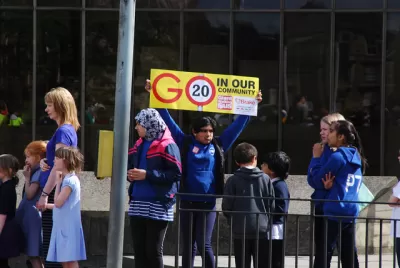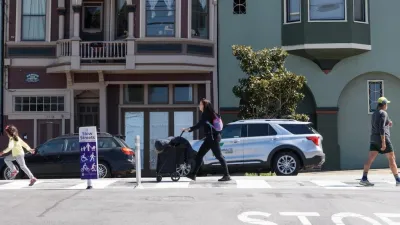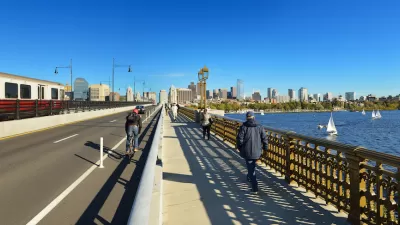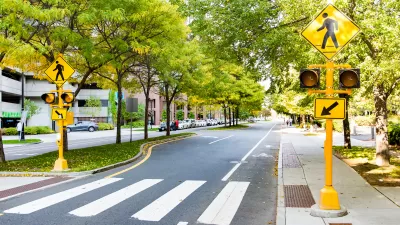Rather than focusing only on which streets are most dangerous, Boston officials asked which neighborhoods wanted safety improvements to slow traffic, 45 different communities around the city said they did.

"In March, the city of Boston announced that after making data-driven improvements to arterials, the city’s new Slow Streets program would ask residential neighborhoods to nominate themselves for traffic-calming features," Rachel Dovey reports for Next City. There are lots of stories about motorists complaining about anything impeding them, but by asking which communities want these improvements the city was better able to work with willing counterparts.
"The goal of having communities nominate themselves was not to create a process in which the squeakiest wheel gets the grease, but to speed up timelines and, in the process, improve neighborhood engagement," Boston Transport Department officials told Next City.
FULL STORY: 45 Boston Communities Asked for “Slow Streets”

Montreal Mall to Become 6,000 Housing Units
Place Versailles will be transformed into a mixed-use complex over the next 25 years.

Planetizen Federal Action Tracker
A weekly monitor of how Trump’s orders and actions are impacting planners and planning in America.

DARTSpace Platform Streamlines Dallas TOD Application Process
The Dallas transit agency hopes a shorter permitting timeline will boost transit-oriented development around rail stations.

Interactive Map Reveals America's “Shade Deserts”
Launched by UCLA and American Forests to combat heat-related deaths, the tool maps the shade infrastructure for over 360 U.S. cities.

Bicycles and Books — In Sacramento, Libraries Now Offer Both
Adult library card holders can check out e-bikes and e-trikes for up to one week.

Colorado Landfills Emit as Much Pollution as 1M Cars
Landfills are the third-largest source of methane pollution in Colorado, after agriculture and fossil fuel extraction.
Urban Design for Planners 1: Software Tools
This six-course series explores essential urban design concepts using open source software and equips planners with the tools they need to participate fully in the urban design process.
Planning for Universal Design
Learn the tools for implementing Universal Design in planning regulations.
City of Mt Shasta
City of Camden Redevelopment Agency
City of Astoria
Transportation Research & Education Center (TREC) at Portland State University
US High Speed Rail Association
City of Camden Redevelopment Agency
Municipality of Princeton (NJ)





























